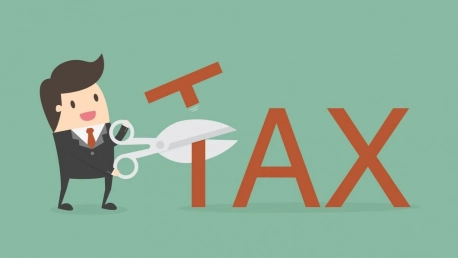As the 2025 expiration of the temporary individual tax cuts from the 2017 Tax Cuts and Jobs Act approaches, US lawmakers are grappling with a significant fiscal issue. These tax reductions, which were extended indefinitely for corporations but set to end for individuals, are at the center of heated discussions concerning the nation’s economic health and fiscal responsibility. As the deadline for the tax cuts’ end draws near, members of the GOP face a political and economic quandary, weighing the benefits of sustaining growth against long-term fiscal stability. In an unexpected shift, some Republicans are entertaining the notion of raising the corporate tax rate to address the impending fiscal dilemma. This pivotal moment calls for bipartisan dialogue and strategic decision-making, as the consequences of these tax policies will reverberate throughout the economy and directly impact American taxpayers.
Assessing Fiscal Priorities and Political Risks
The prospect of the GOP, traditionally seen as the vanguard of low corporate taxes, contemplating an increase in the corporate tax rate underscores a significant shift in the party’s stance. This change is partially driven by the necessity to fund the continuation of individual rate cuts, which have garnered widespread popularity but lack a clear pathway for sustainable financing. The core of this issue lies in the balance between adhering to the party’s conventional ethos of low corporate taxation and the pragmatic need to address the federal deficit, which has been exacerbated by the tax cuts themselves.This dilemma is further compounded by internal party dynamics. Newer Republican lawmakers display less fealty to the corporate tax cuts, some influenced by their constituents’ growing frustration with big corporations perceived as not paying their fair share. Others are expressing fresh concerns about the ballooning deficit, heightening the need for new revenue sources or spending cuts. The growing acceptance of a possible corporate rate increase is a tangible sign of the evolving economic philosophy within the GOP, reflecting deeper questions about how to balance growth incentives with fiscal responsibility.
Navigating Between Economic Strategy and Fiscal Responsibility
The GOP’s tax policy reevaluation is more than a revenue issue; it’s part of a wider American economic strategy debate. Considering an increase in the corporate tax rate is a delicate move that tries to balance business competitiveness with the need for governmental fiscal sustainability. With tax reform discussions stretching past the 2017 law’s temporariness, issues like the controversial SALT deduction cap are coming into the conversation.These financial policy discussions take place as President Biden pushes for a corporate tax hike to 28%, stirring contention among both Republicans and some Democrats. This suggestion’s place in the policy debate signals an evolving stance on corporate taxes. Lawmakers are challenged with reconciling diverse economic predictions, representing varied constituent interests, and recognizing the impact on future generations. They are tasked to weigh immediate tax cut benefits against the need for enduring economic health.









